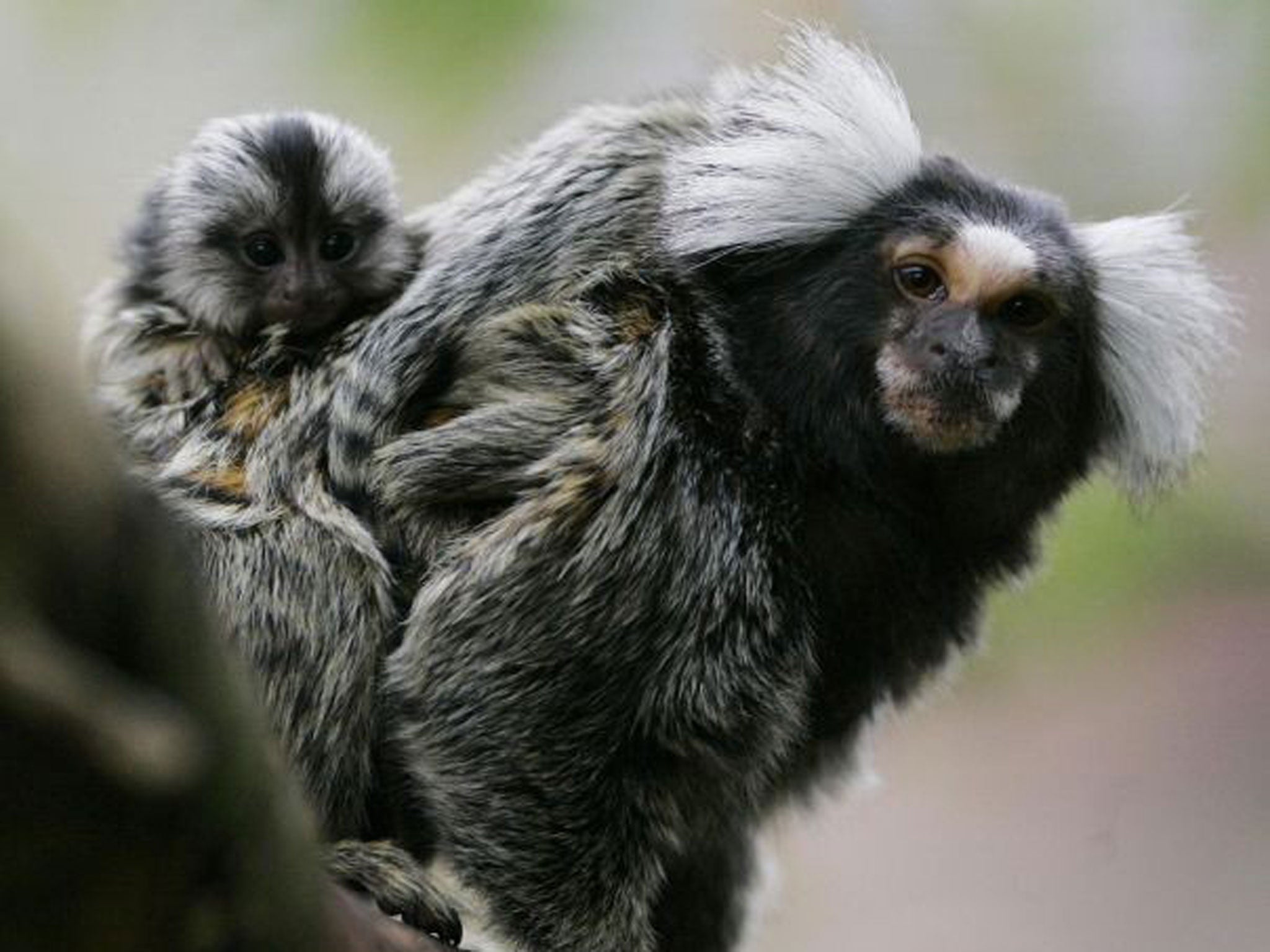Not so cheeky monkey: Marmoset calls follow 'etiquette' with manners similar to human conversation
Scientists say discovery could pave way for 'alternative explanation' of how our own speech patterns evolved

Scientists have discovered that the conversations of marmoset monkeys are far more ordered and “polite” than anyone might have thought, paving the way for a new theory of an “alternative evolutionary route” for our own speech patterns.
When separated from one another by a curtain, marmosets involved in the research took turns to call, waiting for an interval of around five seconds before responding.
The findings, published in the Current Biology journal, have implications for our understanding of how humans evolved to take turns before speaking – a practice which (bad manners excepted) is universal throughout the world and across all languages.
And it could provide the foundation for further research into how and why the patterns of our conversations sometimes break down.
It had generally been accepted that this co-operative characteristic stemmed from the co-operative physical gestures of chimpanzees, the BBC reported. It was, however, something of a mystery as to how this fitted in as an origin for spoken cooperation – chimps are not very vocal and do not exhibit this trait in their calls.
Princeton University’s Dr Asif Ghazanfar set out to find evidence of a vocal equivalent to this evolutionary route, and chose marmosets because they, unlike chimps, are very chatty indeed.
It is one of two main characteristics the monkeys share with humans, Dr Ghazanfar said.
“They're [also] co-operative breeders - so they help one another take care of their offspring.
“That's an important characteristic because it leads to greater pro-sociality (meaning the animals, like us, carry out behaviours that are intended to benefit others).”
The study found that the marmosets exhibited “unspoken rules of conversational etiquette”.
Dr Ghazanfar explained that there were two ideas for why the animals followed these rules.
“One is, if you're out of sight of your group members and want to establish contact with another, you only know if you've established that contact if their response is contingent on your own,“ he told BBC News.
“And the other hypothesis is that these calls they exchange might have information content [that needs to be digested].”
Dr Ghazanfar says that our own conversational turn-taking might have evolved in a similar way - although on a parallel branch of the evolutionary tree – providing an alternative explanation to the “mysterious” idea the principles behind chimps’ gestural exchanges evolved to inform our own speech.
The team said it hopes that continued study of the marmosets will help to reveal more about why our own conversation can sometimes break down.
“We are currently exploring how very early life experiences in marmosets - including those in the womb and through to parent-infant vocal interactions - can illuminate what goes awry in human communication disorders,” said Dr Ghazanfar.
Subscribe to Independent Premium to bookmark this article
Want to bookmark your favourite articles and stories to read or reference later? Start your Independent Premium subscription today.

Join our commenting forum
Join thought-provoking conversations, follow other Independent readers and see their replies